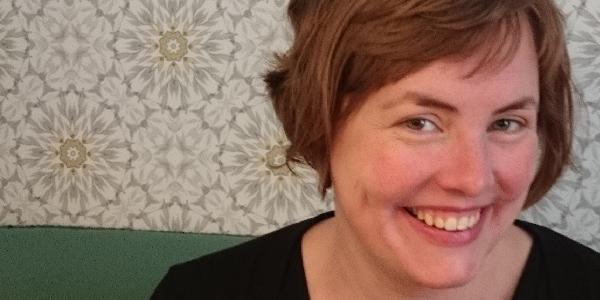Sourcefabric introduces Julia Vernersson

Q. Welcome, Julia! How did you learn about Sourcefabric and what made you excited about joining us?
I found out about Sourcefabric just before last Christmas. I got really excited about the company because it is open source and works with different media. I also explored Booktype a little bit and immediately found myself thinking "where was this all my life?". In the past, I helped to make a couple of books with different international teams working collaboratively and realised that it is important to work with open source tools as much as possible, while licensing all the outcomes under Creative commons. I was also impressed with the mix of nonprofit and for-profit projects that Sourcefabric is involved in.
Q. You already have experience with working for nonprofit organisations. Can you tell us more about that experience?
Before joining Sourcefabric, I worked as a project manager for Loesje International for a couple of years. Loesje International is an organisation focused on creative writing in groups, freedom of speech and expression, and youth projects. After some time within the organisation I felt I needed to start something new, so I founded Kulturlabor Trial&Error, which is mainly involved in projects related to the Do-it-yourself culture, crafts, media and art. Lately we have also been doing a lot of community projects, such as running a local exchange shop for clothes and gardening with young people in the area of Neukölln. My network is mainly related to creative recycling, youth work, activism, media or art.
Q. How did you become interested in creative recycling?
I always liked to do things with my hands, and it is an easy way to get people to engage with each other. When using discarded materials, you have to be pretty creative, and you can experiment without having to worry about damaging the environment. For example, if you work with used bike tubes to make some kind of object and it still doesn’t work out, nothing extra was produced for you to be able to do that, so you can just go on trying until you manage to make just the thing that you were looking for without fear that you are wasting resources.
Q. What is the source of your passion for all of these interesting things?
I was always interested in how groups work together and interact. whether it is on the scale of a local neighbourhood, a city or globally. It might sound a bit cliché, but I really don’t see how humankind can progress without working more closely together, while having a better understanding of each other. Therefore I’m really interested in collaborative working methods and infrastructure which can enable it. Copyleft, creative commons and open source are all based on the idea of sharing information, building upon each others’ works and creating something together.
Q. What do you think are the biggest challenges for the media nowadays?
A lot of decisions we make are based on information we get from the mainstream media. New developments are introducing both big changes and challenges to the media business. Through a part-time position I held with meltwater, which monitors the swedish and danish media landscape, I could see how traditional media is struggling with financing high quality journalism while at the same time investing in new technologies. I’m curious to see what media we will consume in the future and how: who will be producing it, and how we will find some good investigative journalism pieces.
Q. What do you see for the future of media?
I find it pretty frightening how content on the web is very much tailored to your personal profile and preferences with even big papers like The New York Times starting to adopt Facebook direct publishing. This means that you are reading the very same news as your friends, which is possibly creating super homogenous groups which will have very different ideas about how the world looks.
I have hopes that if journalism can manage to be more funded by the readers again, like through crowdfunding campaigns or payment systems like Blendle, it might raise the quality journalism again. Right now the internet is full of free information, but often it’s not trustworthy, is of poor quality or is simply some kind of click-bait, because the funds come from advertising.
Q. What would you change to make media the better place to get information from?
I really think that if we want to have good journalism in the future, the underlying funding mechanisms must change. Additionally the way how people interact on the internet must change, too. I believe readers’ feedback and opinions are often very interesting and discussions should take place on the internet, but I think many people don’t express themselves, because they are afraid of others. I think problems with trolling, harassing or threatening other people have to be taken seriously. If we want to have real freedom of speech, you should not need to be afraid of threats or harassment when expressing your opinion.
Would like to become part of the Sourcefabric team and help us build open source tools for journalists? Then have a look at our open jobs.
